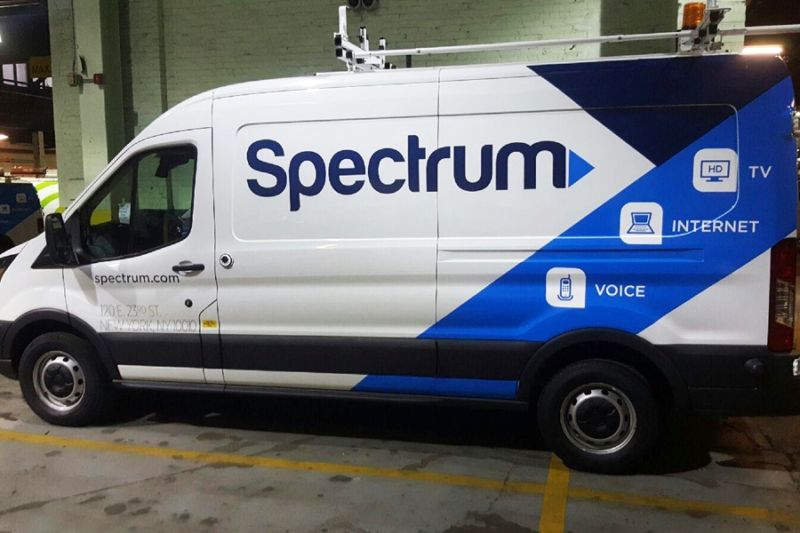
Charter Communications is asking the Federal Communications Commission to block government funding for ISPs that want to build networks in parts of New York where Charter is required to offer broadband.
An FCC rule for Phase 1 of the commission’s $20.4 billion Rural Digital Opportunity Fund (RDOF) bans funding in census blocks where at least one ISP has been awarded money from any federal or state broadband-subsidy program “to provide 25/3Mbps or better service,” and it also bans funding in areas that already have home-Internet access at those speeds. But that rule would not prevent ISPs from getting funding to serve parts of New York where Charter is required by the state government to offer service but in which it hasn’t yet finished construction.
Charter on Friday thus petitioned the FCC for a rules waiver that would ban funding in 2,400 census blocks “in which Charter has unfunded but nonetheless binding state obligations to deploy at least 25/3 Mbps broadband service.” Charter, which sells broadband and other cable services under its Spectrum brand name, said it is deploying speeds of at least 300Mbps downstream and 10Mbps upstream, far above the FCC’s 25/3Mbps standard.
“This will ensure scarce universal service support is deployed to close the gap/digital divide in actually unserved areas,” Charter said. “The Commission has previously granted rule waivers where, as here, the purposes of the rule would be disserved by its strict application, and where [a] waiver would affirmatively serve the public interest.”
Charter’s requested waiver would apply to Phase I of the RDOF, which would distribute up to $16 billion of the $20.4 billion. The FCC has said it wants the first phase to “target those areas that current data confirm are wholly unserved.”
The FCC today announced that it is seeking public comment on the Charter petition, which the FCC said would “exclude from eligibility census blocks in New York in which Charter will deploy broadband service to satisfy its commitments to the state.” Initial comments are due on April 21, and reply comments are due on April 28. (See docket.)
Charter clashed with NY over required broadband
Charter has dragged its feet in serving all the required areas of New York. When Charter bought Time Warner Cable in May 2016, it agreed to extend its network to 145,000 unserved and underserved residential housing units and businesses within four years. But the New York State Public Service Commission (PSC) in July 2018 voted to revoke its approval of the merger, saying that Charter repeatedly failed to meet interim deadlines for those broadband expansions.
Charter disputed the allegations but eventually settled with the state, agreeing to finish building out to the 145,000 locations by September 30, 2021, more than a year later than initially required.
In its new petition to the FCC, Charter said that “deployment on these census blocks will be complete by September 2021 (and possibly earlier given that Charter is ahead of its build-out obligations).” That’s before any possible construction resulting from the planned FCC funding, Charter said.
FCC Chairman Ajit Pai at one point was planning to completely exclude New York state from the RDOF, saying New Yorkers were already served by “previously established programs to fund rural broadband.” But after criticism from the state’s representatives in Congress, Pai reversed course and said on January 30 that New York’s eligibility “will be determined by the same neutral principles applicable to other states.”
RDOF Phase 1 funding is scheduled to be awarded in a reverse auction later this year and will be distributed over 10 years to winning ISPs. Nationwide, about 6 million rural homes and businesses are located in areas eligible for funding in Phase 1, but it’s not clear how many of those locations will be funded. The RDOF is the replacement for the Connect America Fund that has been subsidizing rural networks since 2011. Both programs are paid for by Americans through fees imposed on phone bills.
FCC helped Charter avoid competition in 2017
Charter, the second-biggest cable company in the United States after Comcast, prefers to only offer broadband in areas without serious competition. In 2016, Charter CEO Tom Rutledge explained that he doesn’t like to compete against other cable companies in part because the FCC would block mergers of competitors.
If Charter’s new petition is approved, it wouldn’t be the first time the FCC under Pai has helped Charter avoid competition. Before Pai took over, the FCC actually required Charter to compete against other ISPs in exchange for approving the Time Warner Cable deal. Specifically, the Obama-era FCC required Charter to deploy broadband with download speeds of 60Mbps to at least 2 million residential and small business locations, of which at least 1 million would have to be in areas served by at least one other high-speed provider. The FCC’s then-Democratic leadership reasoned that required “overbuilding” in areas served by only one ISP would bring lower prices and greater choice to consumers.
Pai eliminated that requirement shortly after taking over the commission in 2017, letting Charter provide the 2 million new connections entirely in areas that didn’t already have high-speed service.
Disclosure: The Advance/Newhouse Partnership, which owns 13 percent of Charter, is part of Advance Publications. Advance Publications owns Condé Nast, which owns Ars Technica.
https://arstechnica.com/?p=1668290

